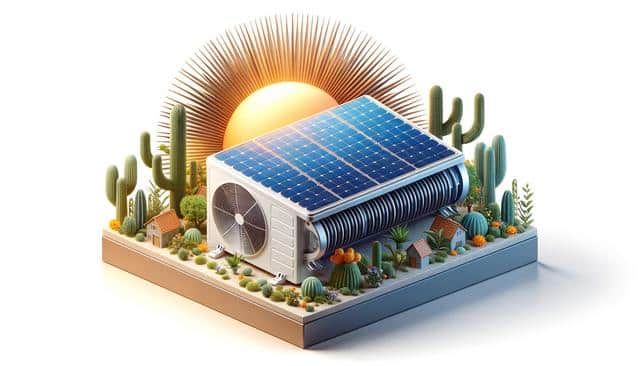Understanding Solar Air Conditioners
Solar air conditioners are emerging as an innovative solution to combat rising energy costs and environmental concerns. Unlike traditional air conditioning units that rely solely on electricity, solar air conditioners harness the power of the sun to operate. This technology utilizes photovoltaic panels to convert sunlight into electricity, which is then used to power the air conditioning system.
The concept is simple yet effective: by utilizing the abundance of solar energy, these air conditioners can significantly reduce dependency on conventional electricity. This not only leads to noticeable savings on energy bills but also contributes to a reduction in carbon footprint, making it a win-win for both consumers and the environment.
How Solar ACs Work
Solar air conditioners operate by integrating solar panels with the traditional AC system. During the day, the solar panels capture sunlight and convert it into direct current (DC). This energy can be used immediately or stored in batteries for later use. When the sun sets, the stored solar energy can continue to power the air conditioning units, ensuring a consistent cooling experience throughout the night.
The efficiency of solar ACs largely depends on the quality of solar panels and the amount of sunlight available in the area. Key components of a solar AC system include:
- Photovoltaic Panels: Convert sunlight into electricity.
- Inverter: Converts DC into alternating current (AC) for home use.
- Batteries: Store excess energy for use when sunlight is unavailable.
- Cooling Unit: The actual air conditioning system that cools the air.
Benefits of Solar Air Conditioners
Solar air conditioners offer numerous benefits beyond energy savings. One of the most significant advantages is their environmental impact. By reducing reliance on fossil fuels, solar ACs contribute to a decrease in greenhouse gas emissions. They also promote energy independence, reducing the strain on power grids during peak usage times.
Additional benefits include:
- Cost Savings: Potential to save up to 60% on energy bills compared to traditional AC systems.
- Low Maintenance: Fewer moving parts mean reduced wear and tear.
- Longevity: Solar panels and systems are designed to last, often outliving conventional AC units.
Installation and Considerations
Installing a solar air conditioning system requires careful planning. It’s crucial to assess the available sunlight and roof space for solar panel installation. Consulting with a professional can help determine the optimal setup for maximizing efficiency and cost-effectiveness.
Factors to consider during installation include:
- Solar Panel Orientation: Ensure panels are positioned to capture maximum sunlight.
- System Size: Ensure the system matches the cooling needs of the space.
- Battery Capacity: Adequate storage for nighttime cooling.
Conclusion: Embracing Solar Cooling
Solar air conditioners represent a perfect blend of technology and sustainability, offering a viable solution for reducing energy costs and environmental impact. As more homeowners and businesses embrace solar cooling, the demand for these innovative systems is expected to grow.
By investing in solar air conditioning, you not only enhance your comfort during hot summer months but also contribute to a sustainable energy future. The transition to solar cooling is a smart choice that benefits both your wallet and the planet.
